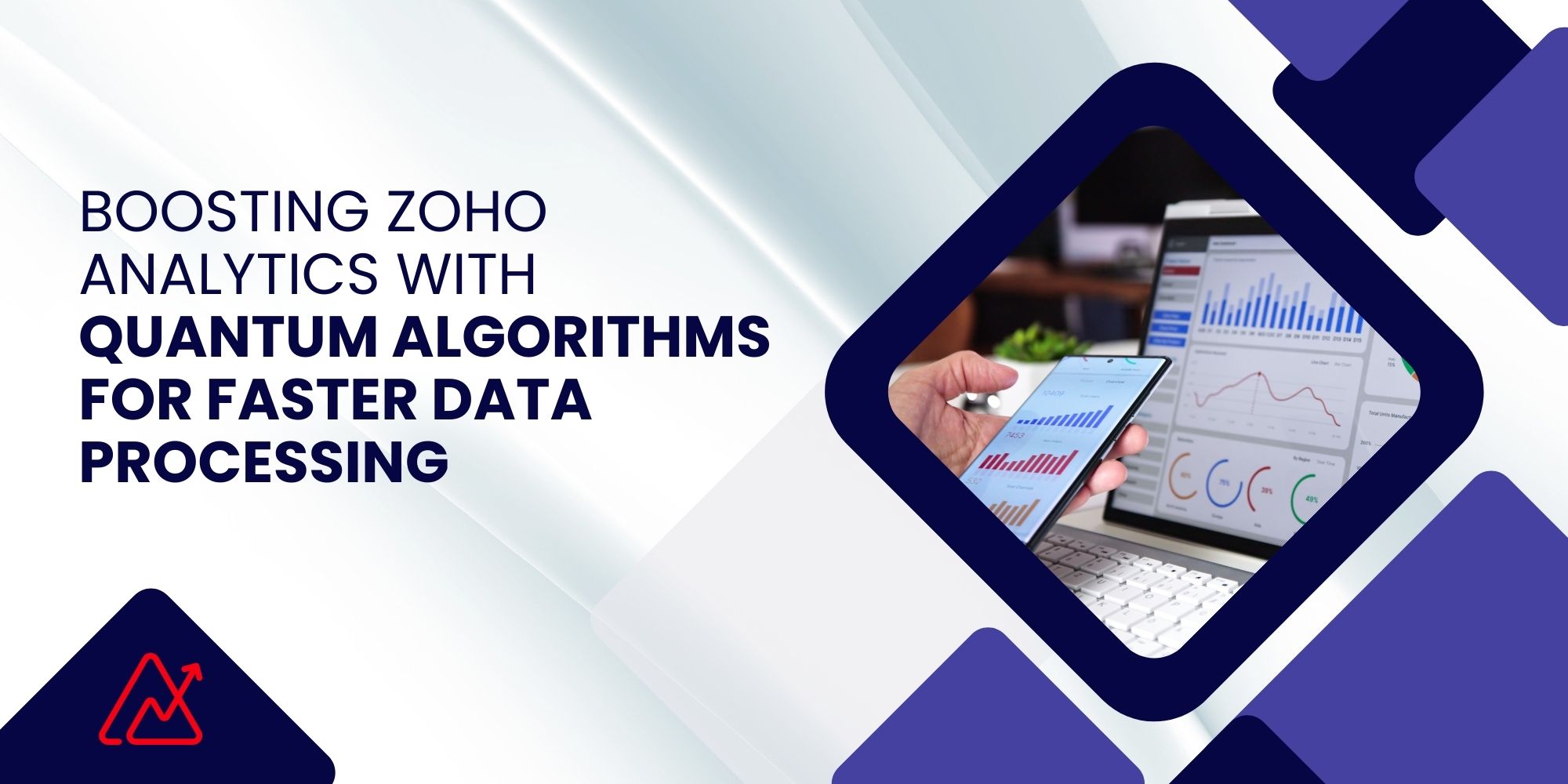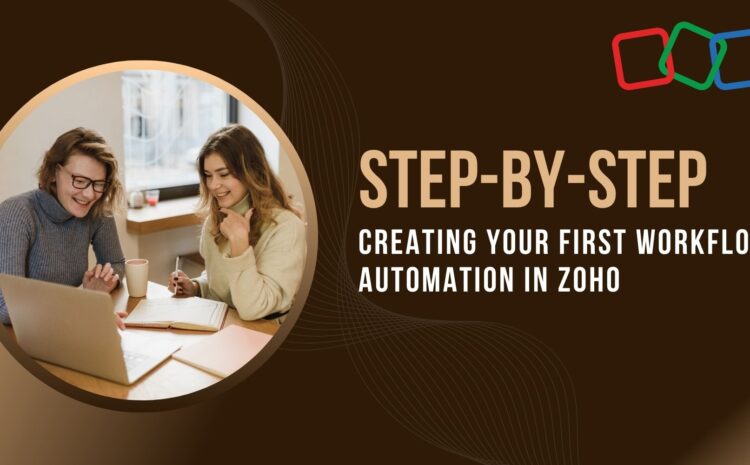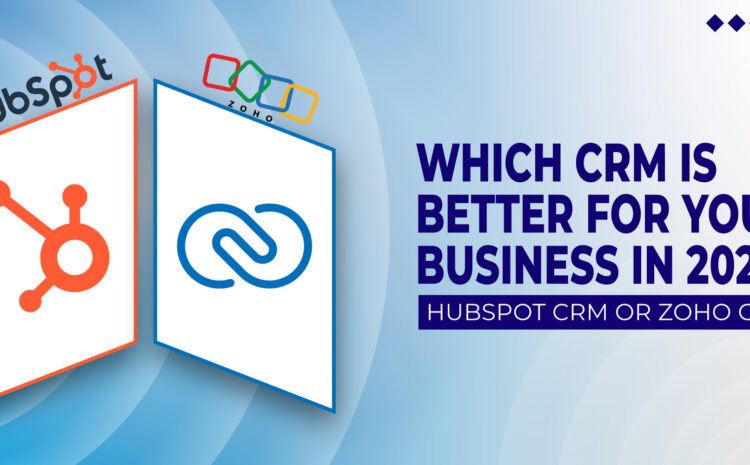Quantum computing could revolutionize Zoho Analytics by enabling faster data processing, advanced AI capabilities, better optimization, and enhanced security. While challenges like hardware limitations and costs exist, the future of quantum-powered analytics looks promising.
Hi everyone! Welcome! Ready to explore the future of data analytics? Grab your favorite drink and get comfortable. Today, we’re diving into how quantum algorithms could revolutionize Zoho Analytics, making data processing faster and smarter. Let’s get started! And if you’re short on time, check out the quick summary at the end.
Data analytics is evolving at an incredible pace, and businesses are constantly seeking new ways to process vast amounts of data efficiently. Zoho Analytics has already made its mark as a powerful business intelligence and analytics tool, but what if we could take it to the next level with quantum computing? Quantum algorithms have the potential to revolutionize data processing, making complex calculations faster and more efficient. In this blog, we’ll explore how quantum computing can enhance Zoho Analytics and what this means for the future of business intelligence.
Understanding Zoho Analytics
Zoho Analytics is a self-service business intelligence and analytics platform that enables users to visualize data, generate reports, and gain valuable insights. It integrates with various data sources, including cloud applications, databases, and spreadsheets, to help businesses make data-driven decisions. Features like AI-powered insights, predictive analytics, and automation make Zoho Analytics a top choice for enterprises looking to streamline their data processing.
However, as data volumes grow, traditional computing methods face limitations in handling massive datasets efficiently. This is where quantum computing enters the picture.
What is Quantum Computing?
Quantum computing leverages the principles of quantum mechanics to perform calculations that would be infeasible for classical computers. Unlike traditional computers that process information using bits (which are either 0 or 1), quantum computers use qubits, which can exist in multiple states simultaneously due to superposition.
Additionally, entanglement allows qubits to be interconnected, enabling faster data processing and more efficient problem-solving. These principles make quantum computers exponentially more powerful than classical computers for certain types of calculations.
How Quantum Algorithms Can Transform Zoho Analytics
Integrating quantum algorithms into Zoho Analytics could lead to unprecedented improvements in data processing, optimization, and predictive modeling. Here’s how:
Faster Data Processing
Quantum computing can analyze large datasets in seconds, which would take classical computers hours or even days. For businesses using Zoho Analytics, this means real-time insights, quicker decision-making, and improved operational efficiency.
Advanced Machine Learning and AI Capabilities
Zoho Analytics already offers AI-powered insights, but with quantum algorithms, machine learning models could train and refine predictions much faster. Quantum computing enables more accurate and complex pattern recognition, which can enhance forecasting models.
Enhanced Optimization and Resource Allocation
Many businesses use Zoho Analytics to optimize supply chains, workforce scheduling, and financial planning. Quantum algorithms can solve complex optimization problems with multiple variables more efficiently, helping businesses allocate resources in the most effective way possible.
Improved Security and Encryption
Quantum computing also has implications for data security. Quantum cryptography provides ultra-secure encryption methods that can protect sensitive business data from cyber threats. This could be a game-changer for organizations handling large volumes of confidential information in Zoho Analytics.
Superior Query Performance
Zoho Analytics allows users to run queries on massive datasets. Quantum-powered databases could dramatically accelerate query execution times, making it easier to extract insights from large and complex datasets.
Challenges of Implementing Quantum Algorithms in Zoho Analytics
While the potential benefits are exciting, there are challenges to consider:
- Quantum Hardware Limitations: Quantum computers are still in the early stages of development and are not widely accessible.
- Integration Complexity: Adapting quantum algorithms to Zoho Analytics would require significant advancements in software compatibility and infrastructure.
- Cost and Scalability: Quantum computing is expensive, and it may take time before businesses can afford to implement it on a large scale.
The Future of Quantum-Powered Analytics
Despite these challenges, research in quantum computing is progressing rapidly, and tech giants like Google, IBM, and Microsoft are investing heavily in quantum advancements. As quantum computing becomes more accessible, platforms like Zoho Analytics may eventually incorporate quantum algorithms to provide businesses with even faster and more powerful data insights.
The fusion of quantum computing and Zoho Analytics could redefine the way businesses handle data. While full-scale adoption may still be years away, staying ahead of these advancements will be crucial for organizations looking to gain a competitive edge. Quantum-powered analytics is not just a futuristic concept—it’s a glimpse into the next era of data intelligence.
Hope you enjoyed this post! While you’re here, and in a reading mood, why not check out a few of our other pieces? We have several blog posts on Cloud Technologies, Salesforce CRM, AI, Salesforce CPQ, Zoho, Bitcoin, Cybersecurity, AWS, and many other topics that we just know you’ll love. Browse the topics here.




